-
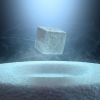 +20 +1
+20 +1Rare Superconductor Discovered – May Be Critical for the Future of Quantum Computing
Research led by Kent and the STFC Rutherford Appleton Laboratory has resulted in the discovery of a new rare topological superconductor, LaPt3P. This discovery may be of huge importance to the future operations of quantum computers. Superconductors are vital materials able to conduct electricity...
-
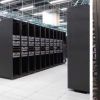 +3 +1
+3 +1Tesla unveils its new supercomputer (5th most powerful in the world) to train self-driving AI
Tesla has unveiled its new supercomputer, which is already the fifth most powerful in the world, and it’s going to be the predecessor of Tesla’s upcoming new Dojo supercomputer. It is being used to train the neural nets powering Tesla’s Autopilot and upcoming self-driving AI.
-
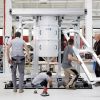 +22 +1
+22 +1IBM’s first ‘retail’ quantum computer is headed to the Cleveland Clinic
The Cleveland Clinic has announced a 10-year partnership with IBM that will see it become the world's first private sector company with an on-premises IBM quantum computer.
-
 +25 +1
+25 +1A brief history of network connectivity: Connected mainframes
How the mainframe went from niche superpower to the backbone of a new concept: the data center.
-
 +30 +1
+30 +1How supercomputers are identifying Covid-19 therapeutics
Searching 30 terabytes of medical data and over 150 billion records takes seconds for a high-end supercomputer.
-
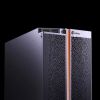 +19 +1
+19 +1The Trillion-Transistor Chip That Just Left a Supercomputer in the Dust
Researchers pitted the biggest computer chip in the world against a supercomputer to simulate combustion—and the megachip won the race by a mile.
-
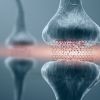 +17 +1
+17 +1Graphene-based memory resistors show promise for brain-based computing
As progress in traditional computing slows, new forms of computing are coming to the forefront. At Penn State, a team of engineers is attempting to pioneer a type of computing that mimics the efficiency of the brain’s neural networks while exploiting the brain’s analog nature.
-
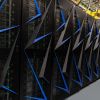 +23 +1
+23 +1I confess, I'm scared of the next generation of supercomputers
Supercomputers are edging ever-closer to the landmark one exaFLOPS barrier
-
 +11 +1
+11 +1Nvidia collaborates with the University of Florida to build 700-petaflop AI supercomputer
A $70 million partnership between Nvidia and the University of Florida will fund the creation of one of the most powerful academic AI supercomputers.
-
 +12 +1
+12 +1Japan Supercomputer Suggests Life Changes Amid Airborne Coronavirus Threat
Supercomputer-driven models simulated in Japan suggested that operating commuter trains with windows open and limiting the number of passengers may help reduce the risk of coronavirus infections, as scientists warn of airborne spread of the virus. In an open letter published on Monday, 239 scientists in 32 countries outlined evidence that they say shows floating virus particles can infect people who breathe them in.
-
 +24 +1
+24 +1The 416 quadrillion reasons why Japan’s supercomputer is number 1
For a good part of last week, the unrivaled highlight of Japanese television—looped on news programs—was a short computer simulation of a salaryman sitting at his desk and coughing. Its primetime primacy is total: this cough is the Killing Eve of animated expectoration.
-
 +27 +1
+27 +1Folding@Home Reaches Exascale: 1,500,000,000,000,000,000 Operations Per Second for COVID-19
Folding@home has announced that cumulative compute performance of systems participating in the project has exceeded 1.5 ExaFLOPS, or 1,500,000,000,000,000,000 floating point operations per second. The level of performance currently available from Folding@home participants is by an order of magnitude higher than that of the world’s most powerful supercomputer.
-
 +14 +1
+14 +1Working in high performance computing? These are the stats you should know
For as long as there have been commercial computers, some hardware was designed for ultimate speed and data-crunching. Here are the numbers that show you how HPC makes a difference.
-
 +36 +1
+36 +1China builds world’s fastest supercomputer without U.S. chips
China's Sunway TaihuLight theoretical peak performance is 124.5 petaflops.
-
 +4 +1
+4 +1Identifying developers' HPC priorities: Parallelism, accelerators, and more
Experts weigh in on what software developers in the high-performance computing community should focus on, including accelerators, parallelism, and of course, the cloud.
-
 +13 +1
+13 +115 non-obvious HPC experts to follow on Twitter
Want to stay up to date on high-performance computing? The best way to stay current is to connect with technologists who know what they’re talking about.
-
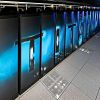 +18 +1
+18 +1Japan Will Deploy the World’s Most Powerful Supercomputer Dedicated to Fusion Science
The National Institutes for Quantum and Radiological Science and Technology (QST) has selected a Cray XC50 supercomputer to support its mission to advance nuclear fusion research and development. The as-yet-unnamed system is expected to deliver more than four petaflops of peak performance, more than doubling the capacity of the machine it replaces. That older system, a 1.5-petaflop Bullx cluster known as Helios, was mothballed last year in anticipation of its successor. In 2012, it was the 12th most powerful supercomputer on the planet.
-
 +10 +1
+10 +1Agricultural genomics: Feeding a growing, hungry world
Next-generation agriculture requires immense computing power. Learn how supercomputing and bioinformatics help scientists adapt agricultural practices to feed 9 billion people.
Submit a link
Start a discussion




















